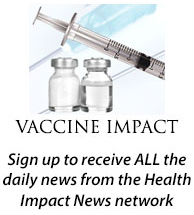
by Dr. Joseph Mercola
Mercola.com
The Bill & Melinda Gates Foundation is the largest charitable foundation in the world, with a trust endowment valued at $48 billion1 and yearly grant payments in excess of $5 billion annually.2 In addition to being one of the largest contributors to the World Health Organization (WHO), with heavy involvement in global public health, the Gates Foundation is deeply involved in agricultural development.
Their website lists four strategic goals as being key to their goal to drive agricultural transformation:3
- Increase agricultural productivity for smallholder farmers
- Increase smallholder farmer household income
- Increase equitable consumption of a safe, affordable, nutritious diet year-round
- Increase women’s empowerment in agriculture
It’s a noble cause but one that’s being carried out using an agenda that supports agrochemicals, patented seeds and corporate control — interests that undermine regenerative, sustainable, small-scale farming.
Excessive Global Influence Focusing on GMOs and Technology
In a report by Global Justice Now, the excessive global influence held by the Gates Foundation is illustrated, starting with the $2 billion the foundation has spent on agriculture, primarily in sub-Saharan Africa and South Asia.
“It is the world’s fifth largest donor to agriculture, spending $389 million in 2013; only Germany, Japan, Norway and the U.S. have larger bilateral aid programs to agriculture,” the report noted, and, “With funding comes in influence.”4
Indeed, in February 2012, when the Gates Foundation announced a $200 million donation to the International Fund for Agricultural Development, Gates talked of the importance of brining “agricultural science and technology to poor farmers.”5 These are buzzwords that imply genetically modified organisms (GMOs) and biotechnology, which are heavily favored by the Gates Foundation.
The No. 1 strategy invested in to drive agricultural change is, in fact, “new products, tools, technologies, systems, and approaches to advance inclusive agricultural transformation. These products may include new livestock vaccines, or new traits that increase a crop’s drought tolerance,” i.e., GMOs, the Gates Foundation website states.6 As further noted by Global Justice Now:7
“The BMGF [The Bill and Melinda Gates Foundation] is promoting a number of specific priorities through its agriculture grants, several of which are undermining the interests of small farmers while claiming to support them.
These include promoting a model of industrial agriculture, the increasing use of chemical fertilisers and expensive, patented seeds, the privatisation of extension services and a very large focus on genetically modified seeds.”
Funding Front Groups Pushing Agricultural Chemicals
The Gates Foundation funds the Cornell Alliance for Science, which is essentially a front group for the agrichemical industry, which makes sense, since Gates has also bought millions of dollars’ worth of shares in Monsanto stock, according to AlterNet (and also invested in soy- and GE-yeast-based “burgers”).8
He’s also furthering the Green Revolution, the Rockefeller Foundation-funded conversion of natural farming to a system dependent on chemicals, fossil fuels and industry, and in so doing, “Bill Gates is continuing the work of Monsanto,” Vandana Shiva, environmental activist and anti-globalization author, stated in an interview with France 24.
The Alliance for a Green Revolution in Africa (AGRA), which has received about $420 million from the Gates Foundation, is essentially a Gates Foundation subsidiary, and while some of its projects appear to be beneficial, most of its goals are centered on promoting biotechnology and chemical fertilizers.
“The main problem with AGRA,” Global Justice Now explains, “is that it is laying the groundwork for the deeper penetration of African agriculture by agribusiness corporations,” and:9
“The BMGF, through AGRA, is one of the world’s largest promoters of chemical fertiliser. Some grants given by the BMGF to AGRA have been specifically intended to ‘help AGRA build the fertiliser supply chain’ in Africa. One of the largest of AGRA’s own grants, worth $25 million, was to help establish the African Fertiliser Agribusiness Partnership (AFAP) in 2012 whose very goal is to ‘at least double total fertiliser use’ in Africa.”
Gates Foundation May Be the Biggest Funder of GMO Research
Another red flag into the Gates’ Foundations antiregenerative intentions is its heavy funding of research into genetic engineering (GE). Global Justice Now states the Gates Foundation is “probably the world’s leading funder of GM [genetic modification] research in the global south,” noting:10
“In an interview with the Guardian’s John Vidal in 2012, the BMGF’s head of agriculture, Sam Dryden, said that “only” 5 per cent of Gates’ agricultural money is directed at transgenic research and development. But as Vidal noted, that may be around $100 million since 2007 — more than any other government or world body is known to have handed out.”
In addition to funding GE research, the Gates Foundation has funded public relations activities that support the widespread adoption of GMOs, including influencing national regulations that favor GE technologies. Meanwhile, the Gates Foundation is targeting new markets in Africa to implement the adoption of these new GE products.
“The major beneficiaries of the BMGF’s push for GM are of course the giant seed manufacturers, such as Monsanto, Syngenta, Bayer and Dupont, and the agro-chemical companies producing fertiliser and pesticides, some of which are being supported in other BMGF-funded projects and investments by the BMFG Trust.
The Gates Foundation is in effect preparing the ground for them to access new profitable markets in hitherto closed-off developing countries, especially in Africa.”11
In Africa, more than 80% of the seed supply comes from small farmers recycling, saving and exchanging seeds each year, but AGRA is pushing patented seeds that would allow a few large corporations to control the seed supply, production and distribution, forcing small farmers to be dependent on them for their very livelihoods to continue.12
Keep in mind, too, that a whopping 35% of cereal and soy, much of it GE, harvested globally is fed to animals being raised on CAFOs (concentrated animal feeding operations).13 Where you could once find locally grown food nearby, we’re now very much dependent on the industrial agriculture complex for our very sustenance.
By taking the power away from small farmers and putting it into the hands of multinational corporations like Monsanto, we have a worrying consolidation and industrialization of agriculture and the food supply. To put the Gates Foundation in perspective, Global Research noted:14
“As for food security, the foundation would do better by supporting agroecological (agrochemical-free) approaches to agriculture, which various high-level UN reports have advocated for ensuring equitable global food security.
But this would leave smallholder agriculture both intact and independent from Western agro-capital, something which runs counter to the underlying aims of the corporations that the foundation supports — dispossession and market dependency.”
More Support for Glyphosate-Cancer Link
The Gates Foundation’s continued support of chemical-intensive industrial agriculture is detrimental for human health. In March 2015, the International Agency for Research on Cancer (IARC), which is the research arm of the World Health Organization (WHO), determined glyphosate to be a “probable carcinogen” (Class 2A).
Since then, Monsanto (which was acquired by Bayer in June 2018), has been inundated by lawsuits from people claiming their cancer was caused by Roundup, which contains glyphosate as its active ingredient.
In the U.S., approximately 42,700 U.S. lawsuits from individuals alleging that glyphosate caused them to develop cancer have already been filed.15 Bayer is in settlement talks to resolve the litigation but continues to deny that the chemical causes cancer.
Ken Feinber, a court-appointed mediator, stated in January 2020 that Roundup cancer claimants could surpass 75,000.16 Research published in Frontiers in Genetics found that exposure in low concentrations (in parts per trillion) may induce cancer in cells when combined with microRNA-182-5p (miR182-5p).17
Likewise, in a comprehensive analysis of glyphosate exposure over a lifetime in animals, its carcinogenicity was further revealed, with “37 significant tumor findings.” Researchers stated:18
“The strongest evidence shows that glyphosate causes hemangiosarcomas, kidney tumors and malignant lymphomas in male CD-1 mice, hemangiomas and malignant lymphomas in female CD-1 mice, hemangiomas in female Swiss albino mice, kidney adenomas, liver adenomas, skin keratoacanthomas and skin basal cell tumors in male Sprague-Dawley rats, adrenal cortical carcinomas in female Sprague-Dawley rats and hepatocellular adenomas and skin keratocanthomas in male Wistar rats.”
Bayer Chair Quits — Toxic Agriculture Is Toxic for Business
In the first three Roundup-cancer cases to go to trial, Bayer has been ordered to pay billions of dollars to the plaintiffs, although the awards were later slashed to the tens of millions range. Now, in February 2020, Bayer Chairmen Werner Wenning, who was instrumental in the Monsanto acquisition, announced he was stepping down, effective April 2020.19
It’s the latest upheaval for the company which, in 2019, saw 55.5% of its shareholders vote against ratifying the management’s actions.20 In response to the minority percentage of votes in favor of ratifying the actions of Bayer’s board of management, the company’s supervisory board said it would stand behind them, including in their efforts to appeal the trials concerning glyphosate.
“While we take the outcome of the vote at the annual stockholders’ meeting very seriously, Bayer’s supervisory board unanimously stands behind the board of management,” Wenning said in a news release in April 2019.21
“The outcome of the vote … does nonetheless show that the annual stockholders’ meeting wanted to send a clear signal to the board of management that Bayer AG should bring out the company’s strengths to a greater extent in the future.”22
While some questioned the timing of Wenning stepping down amid settlement talks for the glyphosate lawsuits, Wenning said in a statement,
“We have made and continue to make progress in handling the legal issues in the U.S. That’s why now is a good time to hand over to my successor.”23
Thousands of Farmers Lining up to Sue for Dicamba Drift
Dicamba, a highly volatile herbicide known for drifting and damaging off-target crops, is another example of industrial agriculture gone wrong. Millions of acres across the U.S. have been damaged by dicamba drift,24 and there’s also disturbing information that the chemical is harming trees. Dicamba use has also turned farmers against one another, as those experiencing damaged crops blame neighboring farms for spraying dicamba.
Lawsuits are now springing up, including the case of a Missouri peach farm, which was awarded $265 million in compensatory and punitive damages due to dicamba damage. More than 2,000 U.S. farmers have since stepped up with additional dicamba damage to their crops and are likely to be included in upcoming dicamba-damage lawsuits against dicamba makers Bayer and BASF.25
What many people don’t realize is that pesticides are not the answer to productive agriculture and feeding the world. In fact, research shows that most farmers could cut pesticide usage by 40% without harming their production. Eighty-six percent of these farms would even improve their production as a result,26 so why isn’t this something the Gates Foundation is standing behind?
To opt-out of the madness, seek out non-GMO, organic foods as much as possible, and support farmers who are using regenerative and biodynamic farming principles instead of chemical pesticides.
The fact remains that one of the best ways to fight back against the multinational corporations and industry-controlled front groups angling to control agriculture and the food supply is to make an effort to support the farmers who are farming the right way, using regenerative farming techniques — without the help of GMOs, Roundup, dicamba and other toxic agricultural chemicals.
Biotech Companies Gain Power by Taking Over the Government
There is no doubt in my mind that GMOs and the toxic chemicals used along with them pose a serious threat to the environment and our health, yet government agencies turn a blind eye and refuse to act — and the reason is very clear: They are furthering the interests of the biotech giants.
It is well known that there is a revolving door between government agencies and biotech companies like Monsanto-now-Bayer. Consider the hypocrisy of the FDA. On paper, the U.S. may have the strictest food safety laws in the world governing new food additives, but this agency has repeatedly allowed GMOs and their accompanying pesticides and herbicides like Roundup to evade these laws.
In fact, the only legal basis for allowing GE foods to be marketed in the U.S. is the FDA’s claim that these foods are inherently safe, a claim which is patently ridiculous. Documents released as a result of a lawsuit against the FDA reveal that the agency’s own scientists warned their superiors about the detrimental risks of GE foods. But their warnings fell on deaf ears.
The influence of the biotech giants is not limited to the U.S. In a June 2017 article, GMWatch revealed that 26 of the 34 members of the National Advisory Committee on Agricultural Biotechnology of Argentina (CONABIA) are either employed by chemical technology companies or have major conflicts of interest.
You may be aware that Argentina is one of the countries where single-crop fields of GE cotton, corn and soy dominate the countryside. Argentina is also a country facing severe environmental destruction. Argentines are plagued with health issues, including degenerative diseases and physical deformities. It would appear that the rapid expansion of GE crops and the subsequent decline in national health indicators are intrinsically linked.
Don’t Be Duped by Industry Shills!
Biotech companies’ outrageous attempts to push for their corporate interests extend far beyond the halls of government. In a further effort to hoodwink the public, Monsanto/Bayer and their cohorts have been caught zealously spoon-feeding scientists, academics and journalists with questionable studies that depict them in a positive light.
By hiring “third-party experts,” biotech companies are able to take information of dubious validity and present it as independent and authoritative. It’s a shameful practice that is far more common than anyone would like to think. One notorious example of this is Henry Miller, who was thoroughly outed as a Monsanto shill during the 2012 Proposition 37 GMO labeling campaign in California.
Miller, falsely posing as a Stanford professor, promoted GE foods during this campaign. In 2015, he published a paper in Forbes Magazine attacking the findings of the International Agency for Research on Cancer, a branch of the World Health Organization, after it classified glyphosate as a probable human carcinogen. After it was revealed that Miller’s work was in fact ghostwritten by Monsanto, Forbes not only fired him, but also removed all of his work from its site.
Industry front groups also abound. The Genetic Literacy Project and the American Council on Science and Health were both Monsanto-funded before Bayer bought Monsanto. Whether that funding continues under Bayer is left to be seen, but other “trusted” sources were also caught taking Monsanto money.
For example, WebMD, a website that is often presented as a trustworthy source of “independent and objective” health information, was exposed acting as a lackey for Monsanto by using its influence to promote corporate-backed health strategies and products, displaying advertisements and advertorials on Big Biotechs’ behalf, furthering the biotech industry’s agenda — all for the sake of profit.
But even with underhanded tactics to peddle their toxic products, biotechs are now unable to hide the truth: Genetic engineering will in no way, shape or form make the world a better place. It will not solve world hunger. It will not increase farmers’ livelihoods. And it most certainly will not do any good for your health — and may in fact prove to be detrimental.
There’s No Better Time to Act Than NOW — Here’s What to Do
So now the question is: Will you continue supporting the corrupt, toxic and unsustainable food system that Big Biotech, Monsanto/Bayer and their industry shills and profit-hungry lackeys have painstakingly crafted? It is largely up to all of us, as consumers, to loosen and break their tight hold on our food supply. The good news is that the tide has turned.
As consumers worldwide become increasingly aware of the problems linked to GE crops and the toxic chemicals, herbicides and pesticides used on them, more and more people are proactively refusing to eat these foods. There’s also strong growth in the global organic and grass fed sectors. This just proves one thing: We can make a difference if we steadily work toward the same goal.
One of the best things you can do is to buy your foods from a local farmer who runs a small business and uses diverse methods that promote regenerative agriculture.
You can also join a community supported agriculture (CSA) program, where you can buy a “share” of the vegetables produced by the farm, so you get a regular supply of fresh food. I believe that joining a CSA is a powerful investment not only in your own health, but in that of your local community and economy as well.
In addition, you should also adopt preventive strategies that can help reduce the toxic chemical pollution that assaults your body. I recommend visiting these trustworthy sites for non-GMO food resources in your country:
Monsanto, Bayer and their allies want you to think that they control everything, but they do not. It’s you, the masses, who hold the power in your hands. Let’s all work together to topple the biotech industry’s house of cards. Remember — it all starts with shopping smart and making the best food purchases for you and your family.
Read the full article at Mercola.com.
References
2 Bill & Melinda Gates Foundation Fact Sheet 2018
3 Gates Foundation, Agricultural Development, Strategy Overview
4, 5, 7, 9, 11, 12 Global Justice Now: ‘Gated Development – Is the Gates Foundation always a force for good?
6 Gates Foundation, Agricultural Development, Strategy Overview, Our Strategy
10 Global Justice Now: ‘Gated Development – Is the Gates Foundation always a force for good?, Page 30
14 Global Research February 27, 2020
17 Front. Genet., 27 September 2019
18 Environmental Health volume 19, Article number: 18 (2020)
19, 23 WSAU February 26, 2020
20 FiercePharma April 29, 2019
21, 22 Bayer April 27, 2019
24 University of Missouri August 14, 2017









Join the Discussion